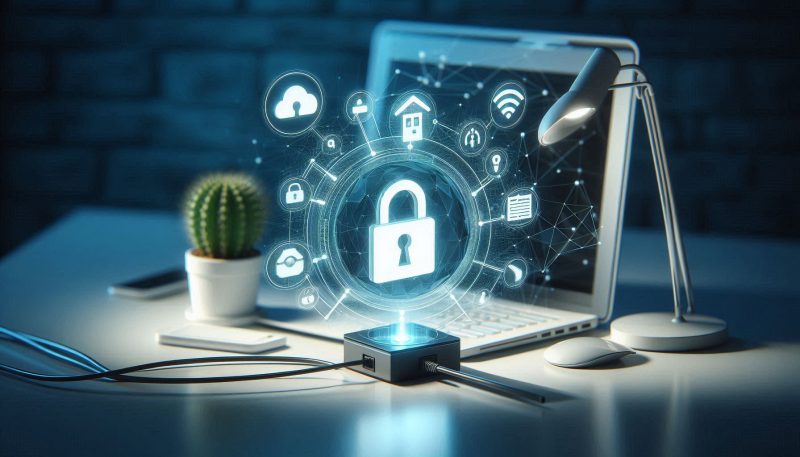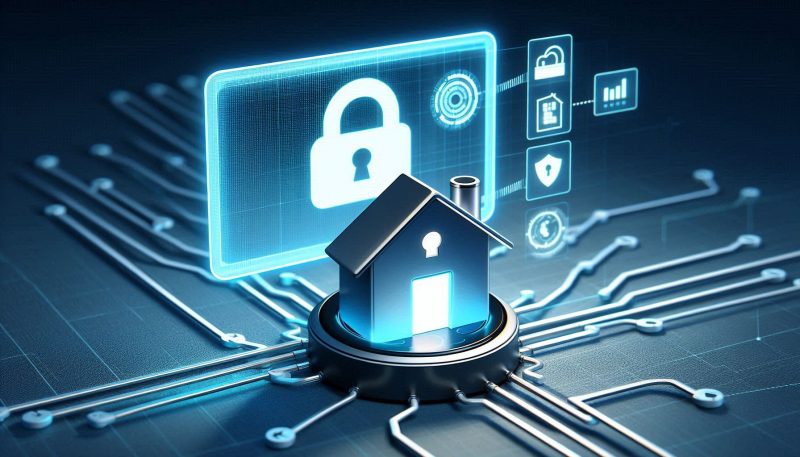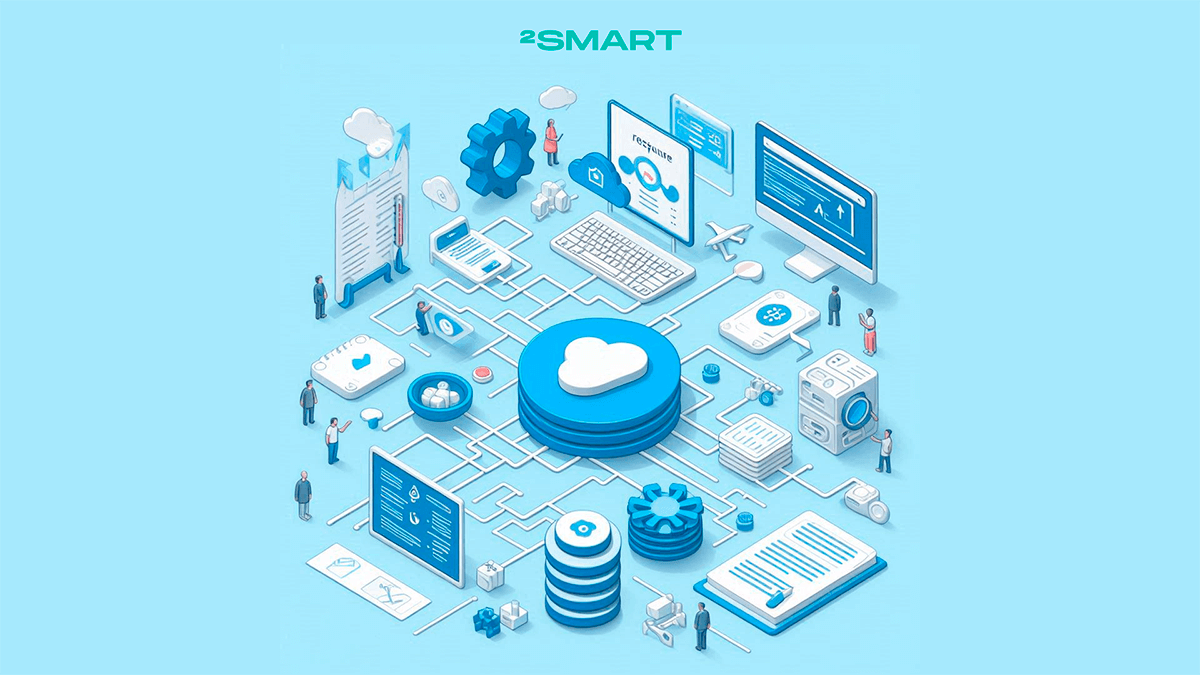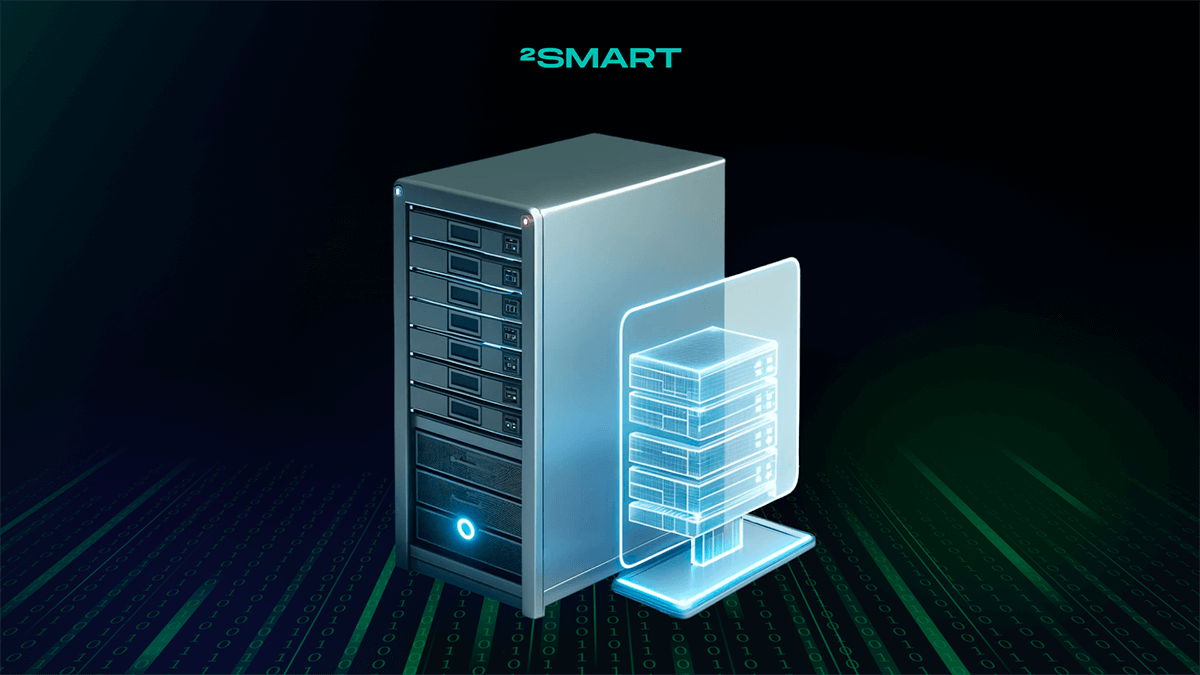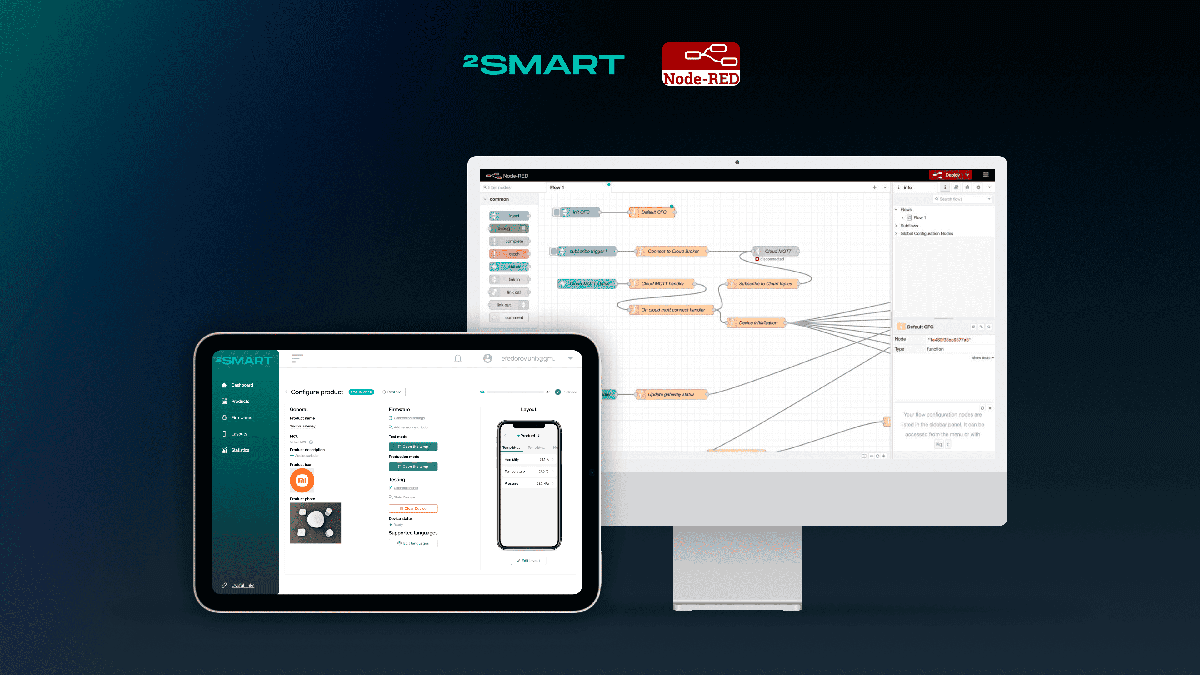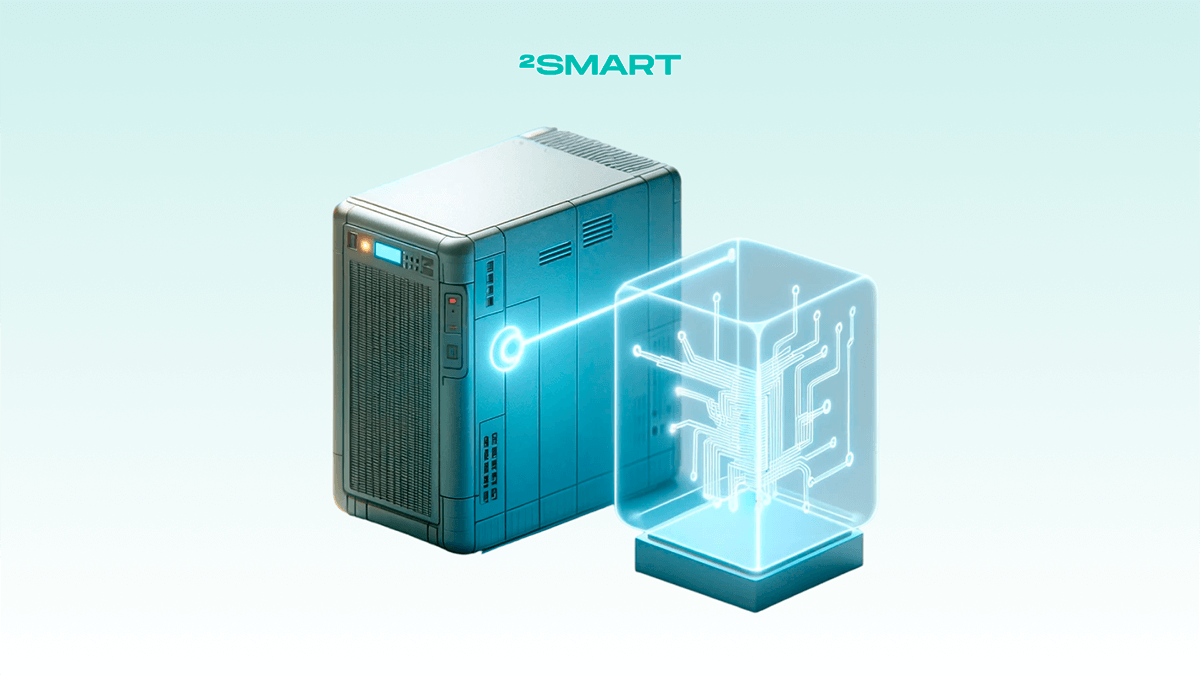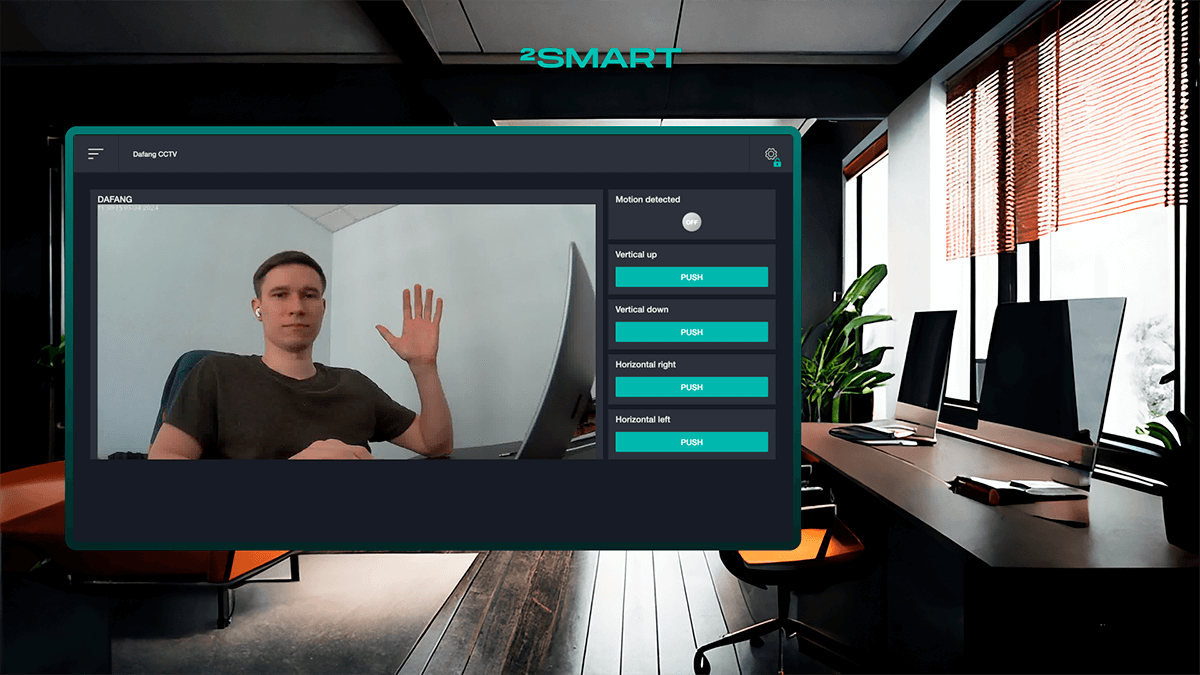Table of contents:
As the Internet of Things (IoT) rapidly evolves, integrating a wide range of devices into our daily lives and industries, ensuring their security and privacy becomes increasingly critical. IoT devices, from smart home systems to industrial sensors, generate and transmit vast amounts of sensitive data, making them attractive targets for cyber threats. As we continue to expand our reliance on these interconnected devices, robust security measures are essential to protect against potential breaches and unauthorized access.
One such measure is the use of Virtual Private Networks (VPNs), which offer a powerful solution for safeguarding IoT devices and the data they handle. VPNs create secure, encrypted tunnels between devices and the internet, shielding them from prying eyes and cyberattacks. They play a pivotal role in enhancing data security, maintaining user privacy, and ensuring compliance with regulatory standards.
In this article, we will explore the numerous benefits of using VPNs for IoT devices, including enhanced security, privacy protection, secure remote access, and compliance with regulatory requirements. We will also discuss strategies for implementing VPNs effectively, address potential future trends in VPN technology, and highlight considerations for maintaining robust IoT security in an evolving digital landscape.
Let’s collaborate
We’re empower your business with our technology expertise
What is a VPN?
A Virtual Private Network (VPN) is a technology that allows users to create a secure virtual network over less trusted networks. In simple terms, it’s a well-protected tunnel between your device and the internet, encrypting your data to prevent leaks. Once you connect to a VPN server, your internet traffic is routed through this server, masking your IP address and current location. This encryption ensures that even if your data is intercepted, it remains unreadable to unauthorized parties.
Let’s briefly explore the key functions of a VPN and how they enhance online security and privacy:
- Data Encryption: As mentioned, VPNs encrypt your internet traffic, making it nearly impossible for hackers to decrypt your data. This means that sensitive information transmitted by IoT devices (like personal data, financial information, critical sensor readings, or surveillance footage) is securely protected.
- Anonymity and Privacy: The hidden IP address provided by a VPN increases your online anonymity. This is crucial for IoT devices, which often collect vast amounts of personal data. A VPN can prevent your internet service provider, advertisers, or malicious actors from tracking your online activities and exposing your personal information.
- Remote Access Protection: Many IoT devices offer remote access for management or monitoring. In such cases, a VPN adds an extra layer of security, reducing the risk of unauthorized access or tampering by encrypting the data transmitted between your device and the remote server.
Using a VPN offers numerous benefits, making it an essential strategy for protecting IoT devices through data encryption, increased anonymity, and overall network privacy and security. IoT devices can be vulnerable due to inadequate security, such as default passwords, outdated firmware, and lack of encryption protocols. Hackers can exploit these weaknesses to gain unauthorized access to sensitive information or even control the devices, posing a serious threat to your privacy and security.
Benefits of Using a VPN for IoT Devices
Implementing a reliable VPN for IoT networks can provide several benefits, enhancing security, privacy, and user experience.
Privacy Protection
VPNs mask the IP addresses of IoT devices, ensuring user privacy and preventing profiling or targeted advertising based on IoT usage. For example, internet-connected smart TVs collect data on viewing preferences. Connecting these devices to a VPN hides their IP addresses, preventing streaming services and advertisers from tracking user preferences or locations.
In logistics, IoT devices like GPS trackers on trucks transmit real-time location and route data. Using a VPN with these trackers conceals their IP addresses, preventing unauthorized access to route and location information.
In healthcare, wearable IoT devices like smart medical bracelets monitor user health data, including heart rate and blood sugar levels. Connecting these devices to a VPN hides IP addresses, protecting patient information and preventing unauthorized access to health data.
Enhanced Security
VPNs encrypt the data transmitted between IoT devices and the internet, protecting it from interception and unauthorized access. For instance, smart home systems with intelligent thermostats collect data on climate and user preferences. Integrating a VPN safeguards this information, preventing unauthorized access. Similarly, in agriculture, IoT devices like soil moisture sensors and automated irrigation systems transmit data about crop conditions. A robust VPN service protects this data from being intercepted by competitors or malicious actors.
Secure Remote Access
VPNs enable users to securely access and manage IoT devices over the internet, which is particularly useful for monitoring, configuring, and troubleshooting devices located in remote or hard-to-reach areas. For example, smart energy meters installed at remote locations can send energy consumption data to central servers. Using a VPN ensures secure access to this data and allows remote management of meter settings, preventing unauthorized access and tampering.
Another example is smart greenhouses equipped with sensors for monitoring temperature, humidity, and light levels. With a VPN, farmers can securely monitor and adjust greenhouse conditions from anywhere in the world, ensuring optimal plant growth without the risk of data breaches or external interference.
For smart irrigation systems that regulate the watering of agricultural lands, a VPN provides secure access for remote configuration and management. This allows farmers to optimize water use and maintain plant health, even when far from the field.
The 2Smart blog also highlights using OpenVPN to connect a Modbus bus to the cloud instance of the 2Smart Standalone monitoring and automation platform. This approach not only enables the connection but also enhances its security. For Modbus devices in real-world applications, this security is crucial due to the reasons outlined above.
Reducing IoT Security Risks
IoT devices can be vulnerable to security threats like malware, botnets, and DDoS attacks. To protect your ecosystem, you can route IoT traffic through a VPN, isolating and securing devices from such threats and reducing the risk of exploitation. For instance, smart home devices, such as HVAC systems, can be safeguarded with a VPN to prevent attacks on home climate control.
In industry, IoT devices like sensors and controllers in production lines can be targeted by attackers aiming to disrupt operations or access confidential production data. Using a VPN for these devices helps ensure secure data transmission and prevents unauthorized interference with manufacturing processes.
Protection Against Man-in-the-Middle Attacks
VPNs for IoT devices establish secure communication channels between devices and the internet, preventing data interception and tampering. This shields devices from man-in-the-middle attacks, where attackers attempt to manipulate communication between two parties. For example, in smart buildings using access control and energy management systems, implementing a VPN creates a secure connection between these systems and central management servers. This prevents the interception or alteration of commands related to access control or energy regulation.
Network Segmentation
IoT VPNs enable the creation of virtual private networks within larger networks, helping organizations segment and isolate devices from other network resources. This prevents potential security breaches and limits the impact of compromised IoT devices on the entire network. For example, in smart buildings using IoT devices like lighting and HVAC systems, implementing VPNs helps create separate virtual networks for each device group. This isolates them from the main building network, reducing the risk of threat spread and protecting critical systems such as access control and surveillance.
In smart agriculture, where IoT devices like temperature and soil moisture sensors are used, VPNs enable the creation of virtual networks for each type of sensor. This helps isolate data from different devices, preventing interference with other systems and protecting against cyberattacks that could affect the entire operation.
Regulatory Compliance
In industries like healthcare and finance, stringent data privacy and security standards are in place. VPNs for IoT devices can assist organizations in meeting these requirements by ensuring data confidentiality and integrity. For instance, in finance, IoT devices such as smart ATMs and transaction processing systems transmit financial data. A VPN encrypts and secures this data, preventing leaks and ensuring compliance with data protection standards like PCI DSS (Payment Card Industry Data Security Standard).
In healthcare, wearable devices monitoring patient conditions, such as smart bracelets for tracking heart rate or blood sugar levels, also transmit sensitive data. VPNs ensure that data sent from these devices to medical servers or systems remains secure, helping to comply with standards like HIPAA and preventing unauthorized access to personal medical information.
Implementation Strategies
To realize the benefits mentioned, research different VPN services and choose the right VPN provider for your IoT devices to ensure effective implementation. Prioritize providers with robust encryption protocols, a strict no-logs policy, and a global server network for optimal performance.
Ensure that your IoT devices and their operating systems are compatible with the chosen provider. When configuring settings, include features like an automatic connection on device startup and a kill switch to maintain continuous protection. Regularly update the VPN software to address vulnerabilities and enhance security.
Make an informed decision by conducting thorough research, checking user reviews, and exploring free trials before committing to a provider to ensure they meet your specific IoT security needs.
Future Trends and Thoughts
IoT adoption is advancing across various industries, and VPN technology is expected to evolve to meet the growing security needs of connected devices. The global VPN market, valued at USD 48.94 billion in 2022, is projected to reach approximately USD 358.64 billion by 2032, with a notable CAGR of 22.04% from 2023 to 2032. A significant driver of this growth will be the increased use of VPNs for IoT devices.
A major advancement is the integration of machine learning algorithms into VPN systems, which offer real-time threat detection and adaptive security measures. Additionally, innovations in encryption protocols and decentralized VPN architectures can ensure privacy and scalability for IoT ecosystems. Blockchain technology, associated with Web3 and decentralization, may also provide hack-resistant security solutions for device authentication and data integrity.
Let’s collaborate
We’re empower your business with our technology expertise
Conclusion
As IoT devices become more prevalent across various sectors, securing these devices and their data is paramount. VPNs offer a comprehensive solution by providing encrypted communication channels that protect against data interception, unauthorized access, and cyber threats. By enhancing security, safeguarding privacy, and ensuring compliance with regulatory standards, VPNs play a critical role in fortifying IoT ecosystems.
Implementing a VPN strategy requires careful consideration of factors such as provider reliability, device compatibility, and ongoing updates to address vulnerabilities. With the increasing integration of machine learning, advanced encryption protocols, and blockchain technology, the future of VPNs looks promising, offering even greater security and scalability for IoT applications.
Incorporating VPNs into your IoT security strategy not only mitigates risks but also strengthens overall system integrity. As IoT technology continues to evolve, staying ahead of potential threats and embracing innovative security solutions will be crucial in maintaining a secure and resilient digital environment.
Frequently Asked Questions
What is a VPN, and how does it work for IoT devices?
A VPN, or Virtual Private Network, creates a secure, encrypted connection between your IoT device and the internet. It routes your device’s traffic through a VPN server, masking its IP address and protecting data from interception. This ensures that data transmitted by IoT devices remains confidential and secure from potential cyber threats.
Why should I use a VPN for my IoT devices?
Using a VPN for IoT devices enhances security by encrypting data and masking IP addresses, which protects against unauthorized access and data breaches. It also helps maintain user privacy, complies with regulatory standards, and provides secure remote access for managing and monitoring devices.
What should I look for in a VPN provider for IoT devices?
When selecting a VPN provider, prioritize those with strong encryption protocols, a no-logs policy, and a global server network. Ensure the provider supports the specific IoT devices and operating systems you use and offers features like automatic connection and a kill switch.
Can VPNs prevent all types of cyberattacks on IoT devices?
While VPNs significantly enhance security by encrypting data and protecting against many types of cyberattacks, they are not a complete solution. They should be part of a broader security strategy that includes regular software updates, strong passwords, and other security measures.
How does a VPN impact the performance of IoT devices?
VPNs may slightly impact the performance of IoT devices due to the encryption process and routing of traffic through VPN servers. However, choosing a high-quality VPN provider with a robust server network can minimize performance issues and ensure smooth operation.
How often should I update my VPN software?
Regular updates are crucial for maintaining VPN security. Update your VPN software as soon as new versions are released to address vulnerabilities and improve performance. Most VPN providers offer automatic updates to ensure you always have the latest security features.
Don't forget to share this post!
Read Next
Let’s dive into your case
Share with us your business idea and expectations about the software or additional services.

